NHL expansion team realignment: where to put Quebec's new Nordiques

In a perfect world, the NHL’s recent expansion cattle call would have lured interested parties from locations across the Western U.S., giving the league a chance to select two geographically ideal locations to balance the conferences at 16 teams each.
Instead, it got Las Vegas and Quebec City.
Vegas, located about an hour away from Phoenix and Los Angeles by air, fits perfectly into the Western Conference footprint. Quebec City, an eight-hour flight from Phoenix and L.A. with no non-stop service, is somewhat less ideal.
But that won’t stop the league from considering it as an expansion option ... or from slotting the new edition of the Nordiques into the Western Conference, if necessary.
“That’s something we would obviously have to consider,” NHL Commissioner Gary Bettman told Amalie Benjamin of The Boston Globe.
NHL expansion bid results disappoint league, leave Seattle out in cold
Obviously, that’s not the best-case scenario. But the league has created and dealt with its own imperfect and sometimes goofy geography in the past. It was only a couple of years ago that the Blue Jackets and the Red Wings were part of the West. The Maple Leafs have spent time in the West as well. So have the Penguins and the Flyers. The Canucks entered the league in the East Division in 1970–71 and stayed there for four seasons. After a quickie relocation from Atlanta in 2011, the Jets were forced to play in the Southeast Division along with the Panthers, the Lightning and the Hurricanes. Florida and Tampa Bay now play in the Atlantic Division, but they are lumped in there with the Bruins, the Canadiens, the Sabres, the Senators, Detroit and Toronto.
It’s a problem, but not the biggest one out there.
“The experience with Winnipeg in the Southeast was less than ideal,” Bettman said. “The experience over time with Detroit and Columbus in the West—and they’re farther west geographically—they couldn’t wait to get into the East. So geography is an issue. But the fact that we identify it as an issue doesn’t mean we’ve reached a conclusion. It means it’s one of the things that has to be considered.”
Quebec City’s stunning new arena designed with NHL team in mind
In other words, no one’s putting the expansion cart before the horse just yet. Before the NHL worries about where to put Quebec City in the league, it has to first decide if it wants to add Quebec City to the league. But you can bet that it’s going to happen. Quebecor, the media entity behind the bid, is already a partner with the NHL through the Rogers broadcasting deal. An arena is in place. So is the market support—no need for a ticket drive to measure interest there.
That’s not all Quebec City has going for it. There aren’t many owners who would turn down the chance to cash a $500 million expansion fee check. And the logistics of expanding to 32 teams rather than taking Vegas only and settling for 31 works in QC’s favor as well.
If the new Nordiques have to play in the West to earn admission to the NHL, well, you can bet they’ll happily bite the bullet. But surely that inelegant solution isn’t the only one on the table.
Probably the best option is to create an eight-team all-Canadian division, which would guarantee the extension of some of the best rivalries in the game—Edmonton vs. Calgary, Toronto vs. Montreal, Toronto vs. Ottawa, Montreal vs. Quebec City—and also would see the popular eastern Canadian teams make more visits out west. The league would have to make some accommodations in terms of scheduling and, possibly, also offer compensation for higher travel expenses, but it’s a sensible approach for those teams. It would also allow for simple geographic division of the remaining 24 U.S.-based teams and would ensure that a Canadian market would be involved in the final four—a boon for broadcast partner Rogers.
It’s also conceivable that Quebec could be placed in the East with another team, possibly Columbus, moving back to the West. That’s not ideal for the Blue Jackets, who no doubt would demand compensation for accepting divisional relocation. But there were never any guarantees that Columbus would remain in the East after the current three-year realignment “expires” following the 2015-16 season. Moving them back to the West might be the least painful recourse.
It’s also possible that Quebec City will be slotted in the East and that the league would stick with an unbalanced conference lineup in which one side has two more teams than the other.
And those are hardly the only options as this wildly creative realignment website shows.
Clearly there are solutions that go beyond tossing Quebec into the West out of convenience. We’ll see if the NHL can agree on one of them.
Hot links
• Despite limited roster turnover the Flyers look to be a better team heading into 2015–16.
• Here’s a look at the greatest hockey nicknames of the ’90s.
• Former NHL official Paul Stewart explains the process for evaluating referees and linesmen.
• Good thing the Coyotes appear to have solved their problems in Glendale. It sounds like they couldn’t afford a move to Phoenix.
• Tyler Seguin of the Starsis about to make his movie debut.
• GQ takes a look at the the everyday diet of a Stanley Cup champ.
• NHL expansion teams and their fates
NHL Expansion Teams
Los Angeles Kings | 1967
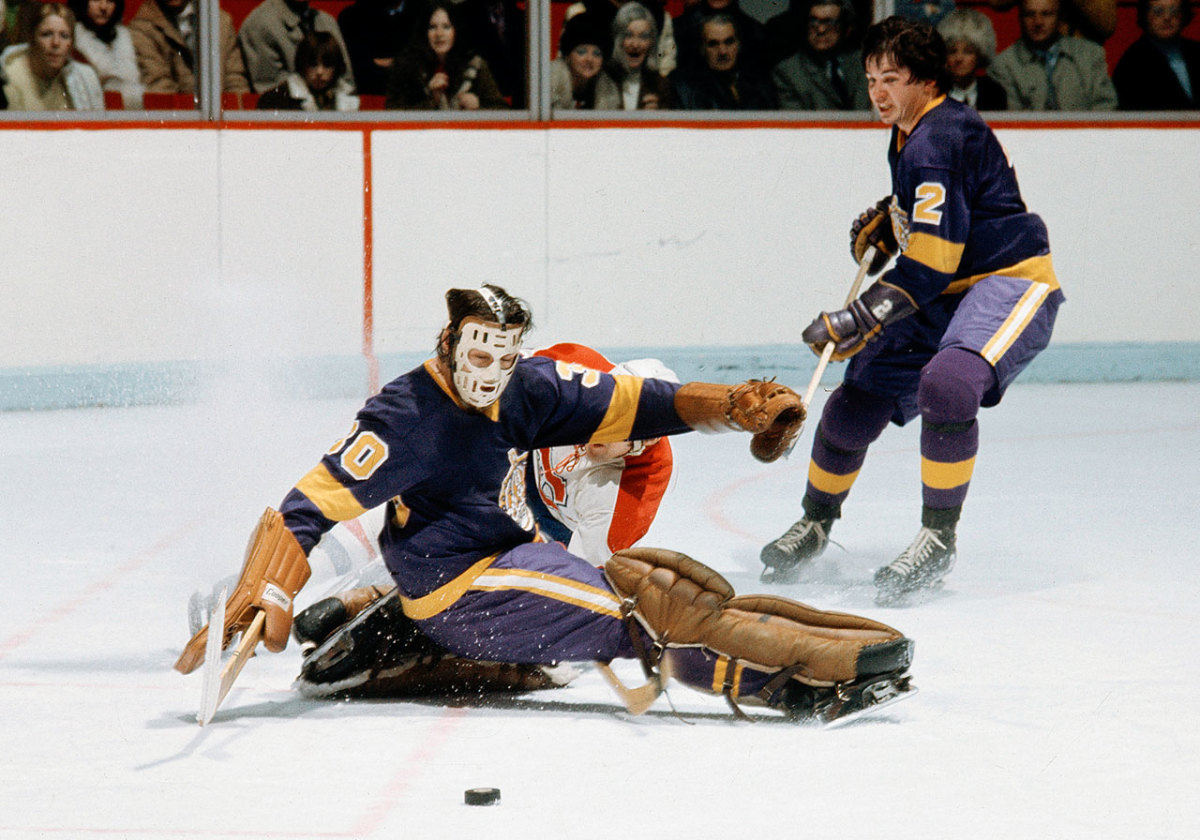
One of the six new teams the NHL added in its landmark expansion from the Original Six era, the Kings were originally owned by Jack Kent Cooke, who saw great potential in the LA area. Front office mismanagement fueled poor attendance, but a subsequent owner, Bruce McNall, put the Kings on the sports map in 1988 by acquiring Wayne Gretzky. The team reached the Stanley Cup Final in 1993, but went bankrupt in 1995. It was rescued by new owners Philip Anschutz and Edward Roski, and has since been quite successful, winning the Cup in 2012 and ’14. All-time regular season record: 1,501-1,605-424-106; Postseason appearances: 28; Stanley Cups: 2
Minnesota North Stars | 1967
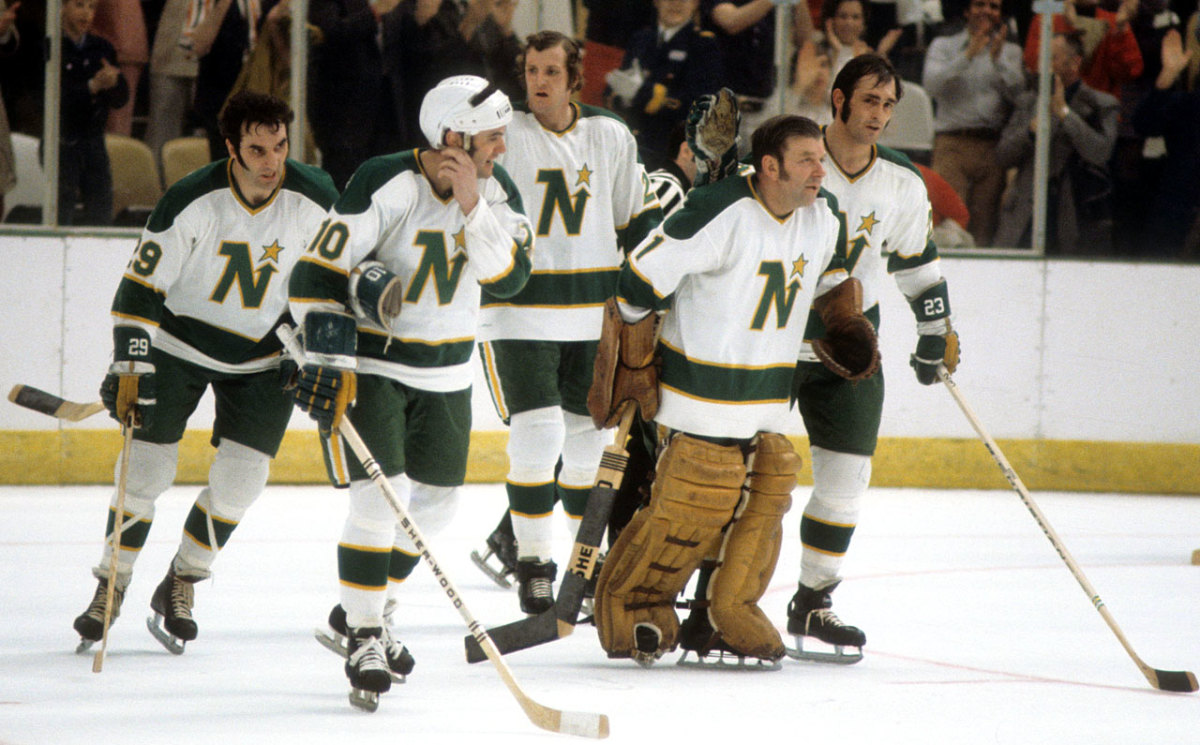
Awarded to a hockey hotbed, the North Stars began to struggle at the gate when they failed to reach the playoffs five times in six seasons (1973-79), and were merged with Cleveland Barons in a bid to keep them afloat. They recovered on the ice, reaching the Stanley Cup Final in 1981 and ’91, but remained the subject of relocation threats (Anaheim; San Francisco). They were finally moved to Dallas in 1993, becoming the Stars and winning the franchise’s first Cup in 1999. All-time regular season record: 1,572-1,510-459-95; Playoff appearances: 30; Stanley Cups: 1
California Seals | 1967
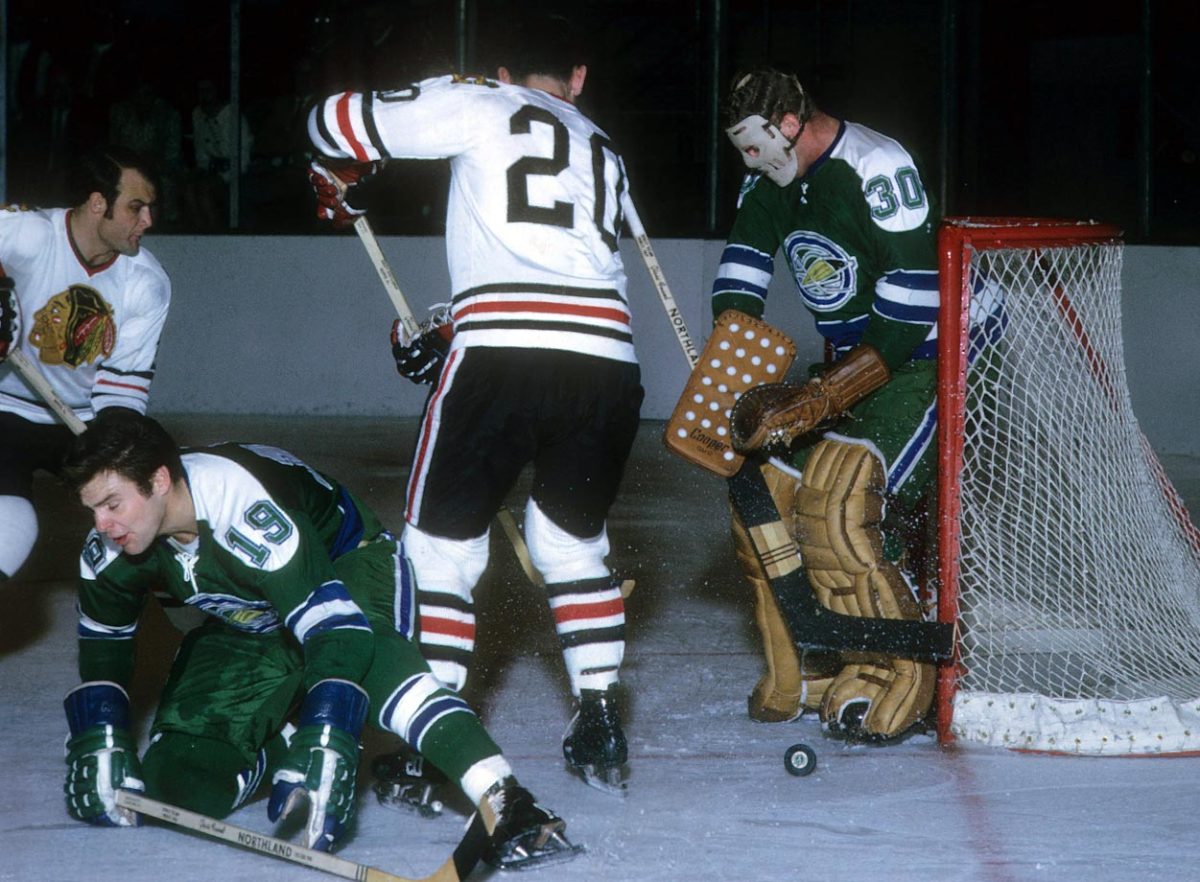
Victims of an identity crisis (their name was changed from California to Oakland during their first season, then to “Golden Seals” in 1970) and a dire shortage of talent, the Seals were never winners during their 11 seasons in the league. They made the playoffs, exiting in the first round, in their second and third seasons, but where otherwise a hot potato franchise with low attendance and frequent ownership changes. In 1976, they moved to Cleveland (the first NHL franchise to relocate since 1935) and became the Barons, only to be merged with the struggling Minnesota North Stars two years later, thus becoming the only NHL team to go under since the Brooklyn Americans in 1942. All-time regular season record: 229-488-141-0; Playoff appearances: 2; Stanley Cups: 0
Philadelphia Flyers | 1967
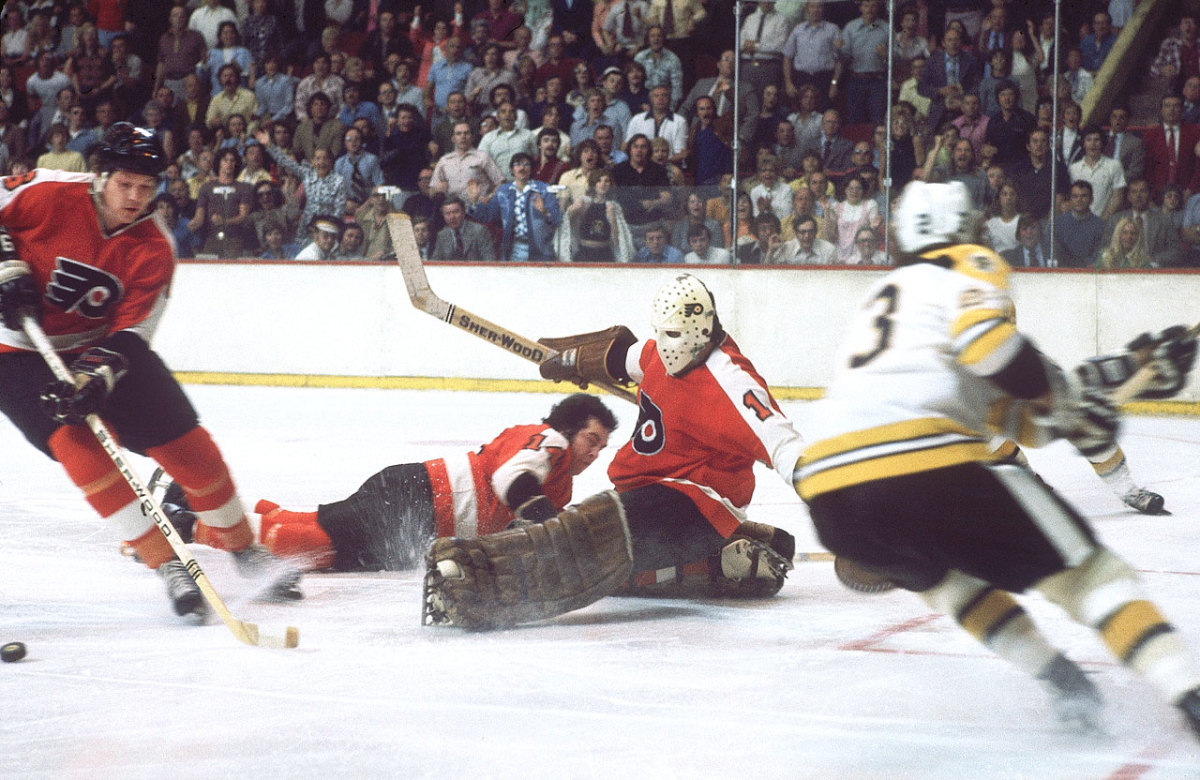
The most consistently stable and certainly one of the most successful original expansion era franchises, the Flyers are still controlled by original owner Ed Snider. They began life in the NHL’s new “West Division” which housed the six expansion teams the league added in 1967, and have since made eight Stanley Cup Final appearances, winning twice. All-time regular season record: 1,821-1,254-457-104; Postseason appearances: 37; Stanley Cups: 2
Pittsburgh Penguins | 1967
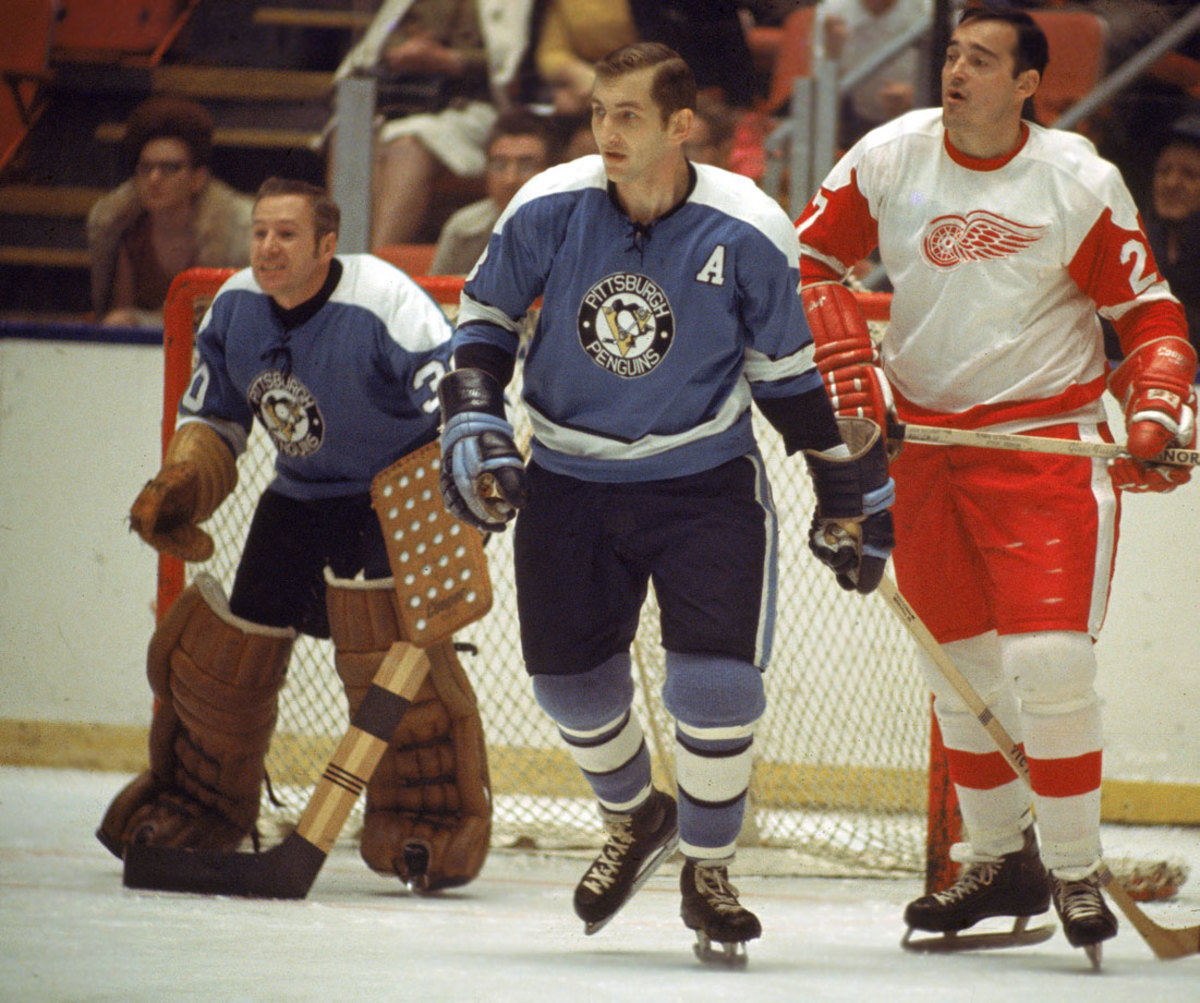
The Pens have seen great highs and dramatic lows during their 47 years in the NHL. Blessed with superstars such as Mario Lemieux, Jaromir Jagr and Sidney Crosby plus four Stanley Cup Final appearances and three championships, they’ve also suffered dire and sometimes prolonged droughts on the ice. They were nearly moved to Seattle in the ‘70s, and by the mid-2000s were in the throes of financial collapse and on the verge of being relocated (possibly Kansas City or Hamilton, Ontario), but the arrival of Crosby in 2005, Lemieux’s ownership, and a new arena have restored stability. All-time regular season record: 1,594-1,566-383-93; Playoff appearances: 29; Stanley Cups: 3
St. Louis Blues | 1967
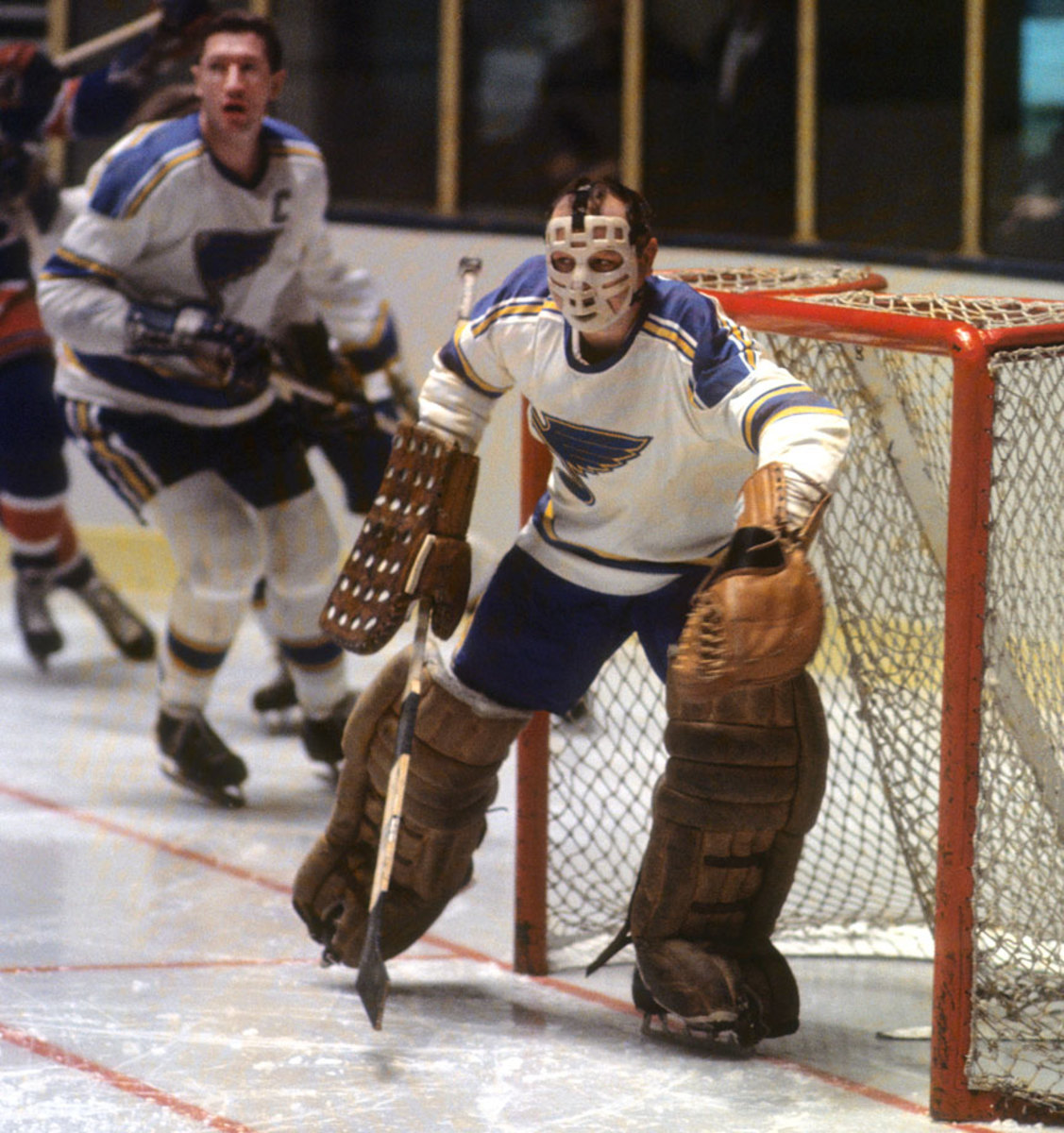
Ultimate survivors, the Blues began NHL life by representing the expansion West Division in the Stanley Cup Final for three straight seasons, but they remain the only existing member of the Class of ’67 that has not won the Cup. By the 1970s, they began experiencing persistent financial difficulties that led to a succession of ownership changes. At one point in the early ‘80s, the Blues looked like a candidate for contraction, and the NHL took over the team after preventing it from being relocated to Saskatoon. Last season, Forbes ranked St. Louis 29th in value, at $185 million. All-time regular season record: 1,625-1,469-432-110; Postseason appearances: 38; Stanley Cups: 0
Buffalo Sabres | 1970
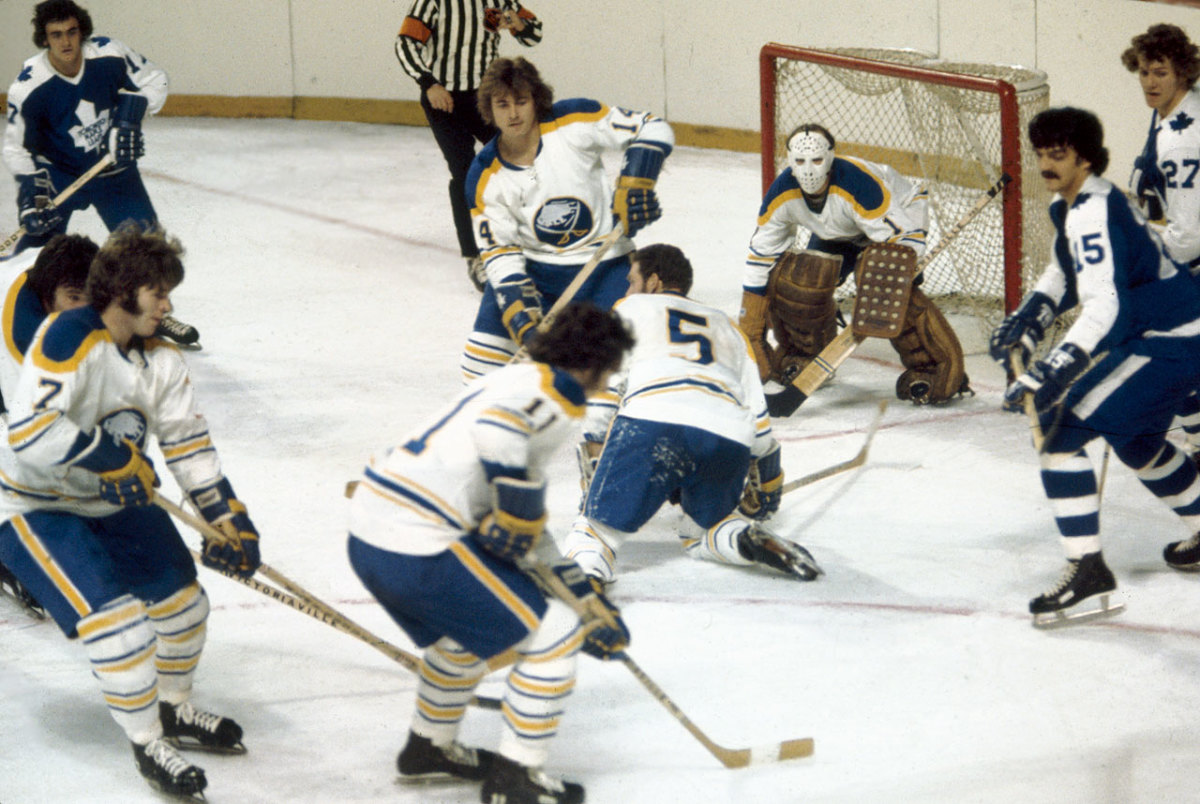
Blessed with one of the most passionate fan bases in all of sports, the Sabres have had their ups and downs, making two Stanley Cup Final appearances and, since the late ‘90s, surviving financial difficulties, ownership changes, and the possibility of being relocated. Current owner Terry Pegula, a lifelong fan, has vowed to rebuild the struggling team, which is still seeking its first Cup. All-time regular season record: 1,611-1,291-409-99; Postseason appearances: 29; Stanley Cups: 0
Vancouver Canucks | 1970
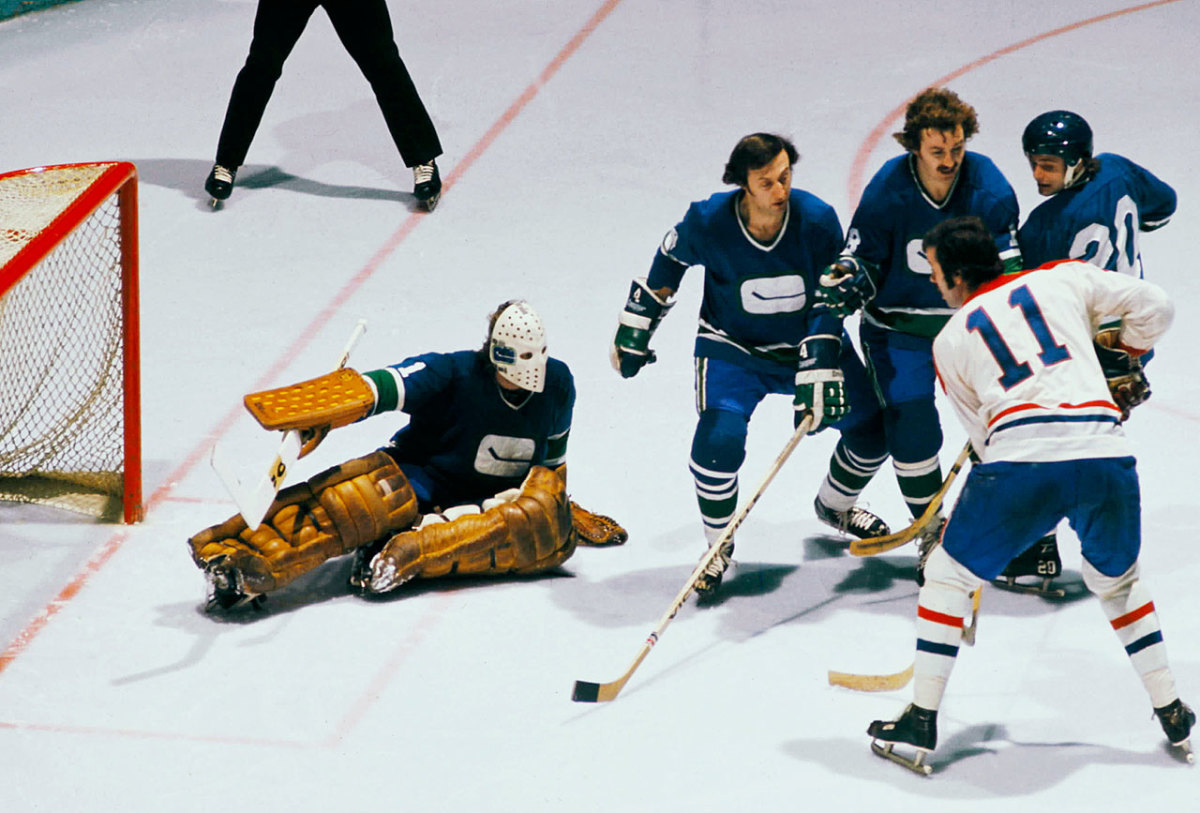
After Vancouver nearly landed the struggling Oakland Seals, the Canucks became the city’s first major pro hockey team since the Millionaires of the PCHL folded in 1926. The franchise—which remains stable and is ranked by Forbes as the NHL’s fourth most-valuable ($700 million)— has survived stretches of losing seasons and a threat from the WHA’s Vancouver Blazers, while making three Stanley Cup Final appearances and occasionally breaking the hearts of its devoted and often demanding fans. All-time regular season record: 1,415-1,504-391-100; Postseason appearances: 26; Stanley Cups: 0
Atlanta Flames | 1972
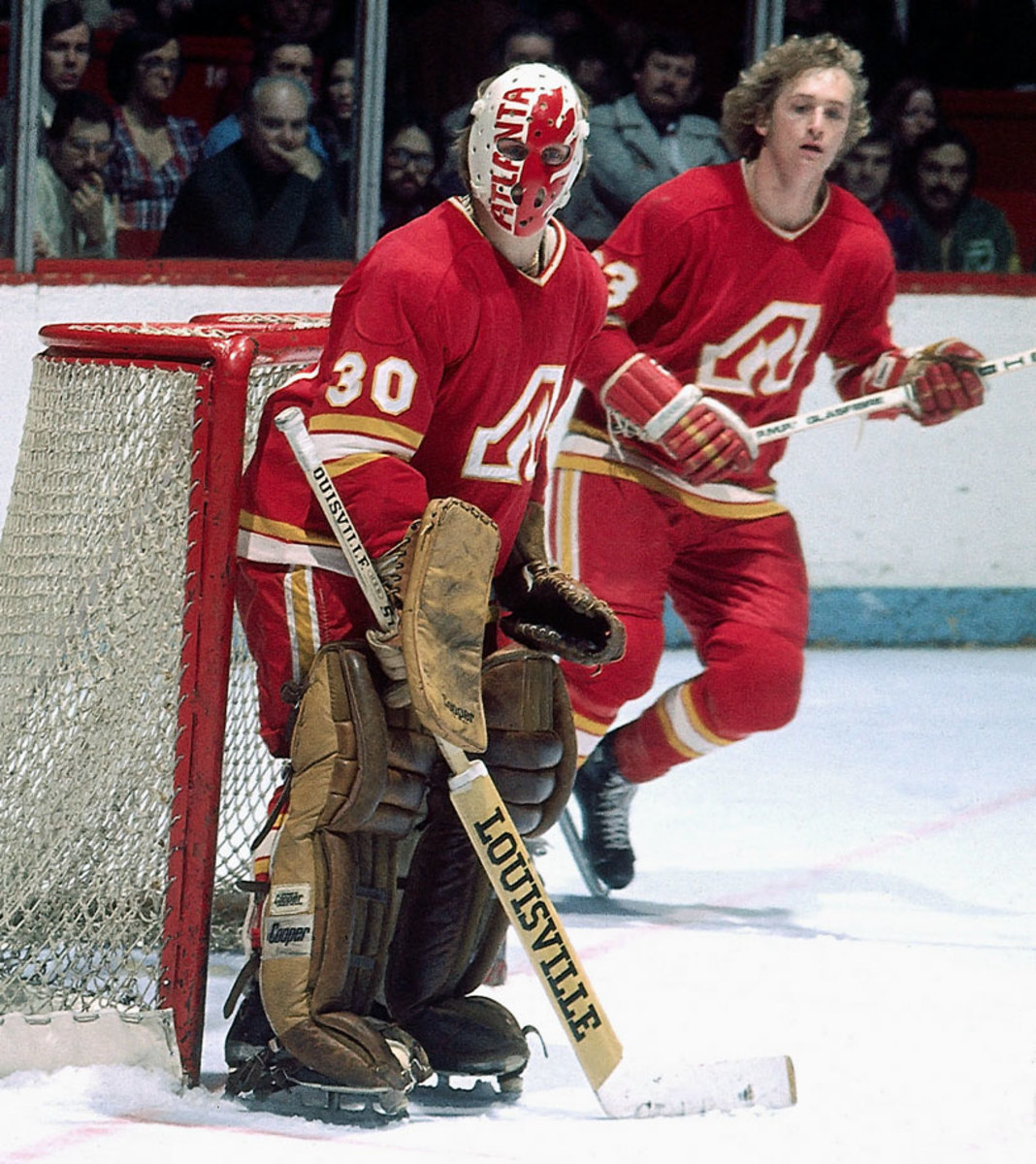
The NHL’s first foray in Atlanta—the owners of the NBA’s Hawks were awarded the franchise—did not go well despite the Flames making the playoffs in six of their first eight seasons. Five first round exits didn’t help, but the city’s fans were apathetic and the team struggled financially, thanks in part to receiving little TV revenue. In 1980, principal owner Tom Cousins sold the team to avoid bankruptcy. It was hoped that the Flames would remain in Atlanta, but buyer Nelson Skalbania moved them to Calgary in time for the 1980-81 season. All-time regular season record: 1,491-1,279-379-105; Postseason appearances: 26; Stanley Cups: 1
New York Islanders | 1972
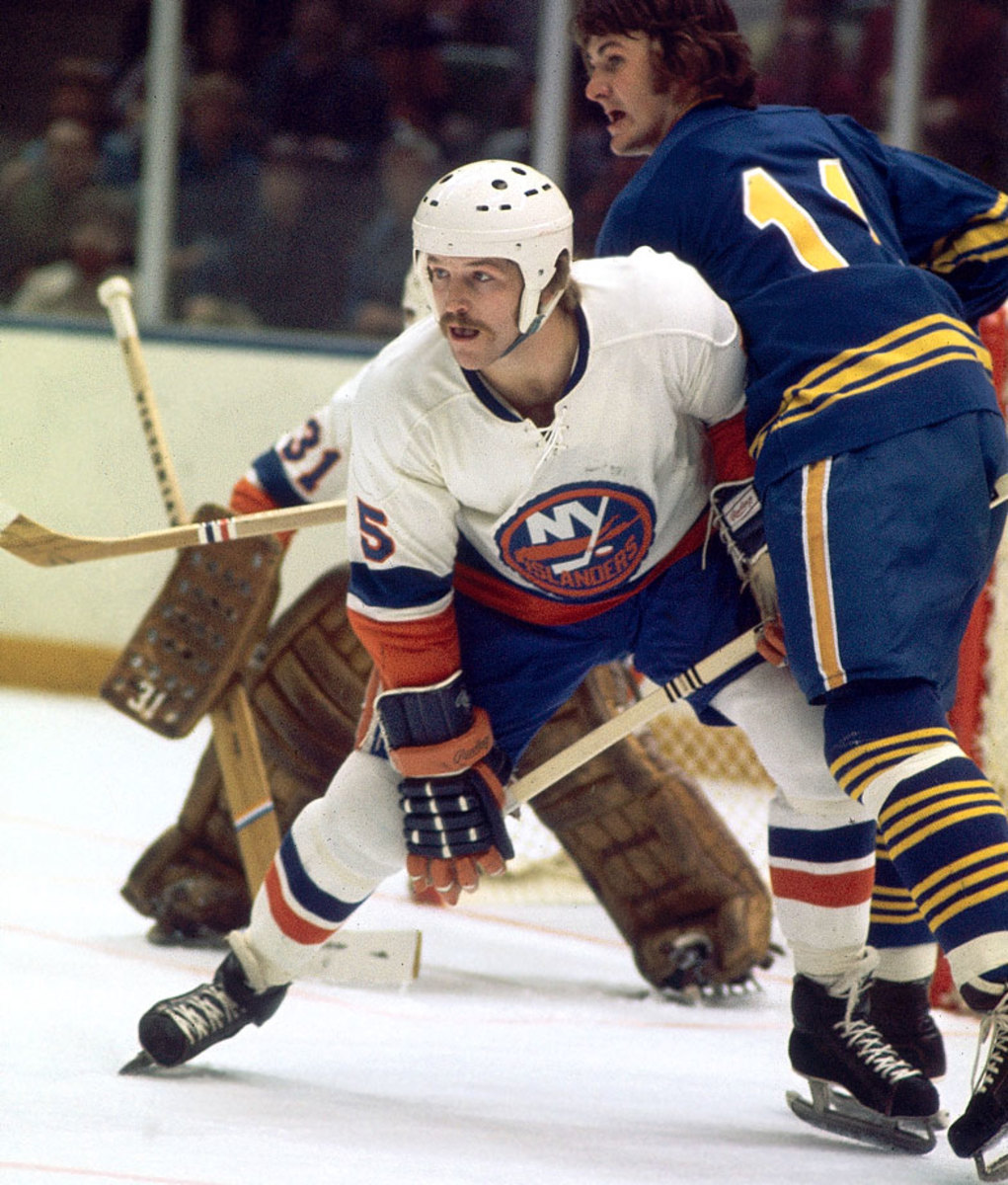
Their first season was an epic 12-60-6 disaster, but the team soon began a meteoric rise into a dynasty that won four successive Stanley Cups during a run of five straight final appearances (1980-84). After that, owner John O. Pickett, who had signed a disastrous long-term arena lease that denied the team badly needed revenue, moved to Florida and handed control of the Isles to the first of a succession of dubious owners that included notorious con man John Spano. A long descent into mediocrity ensued. Bleeding red ink, current owner Charles Wang, unable to replace the crumbling Nassau Coliseum, decided to move the Isles to Brooklyn for the 2015-16 season. All-time regular season record: 1,405-1,399-347-103; Postseason appearances: 22; Stanley Cups: 4
Kansas City Scouts | 1974
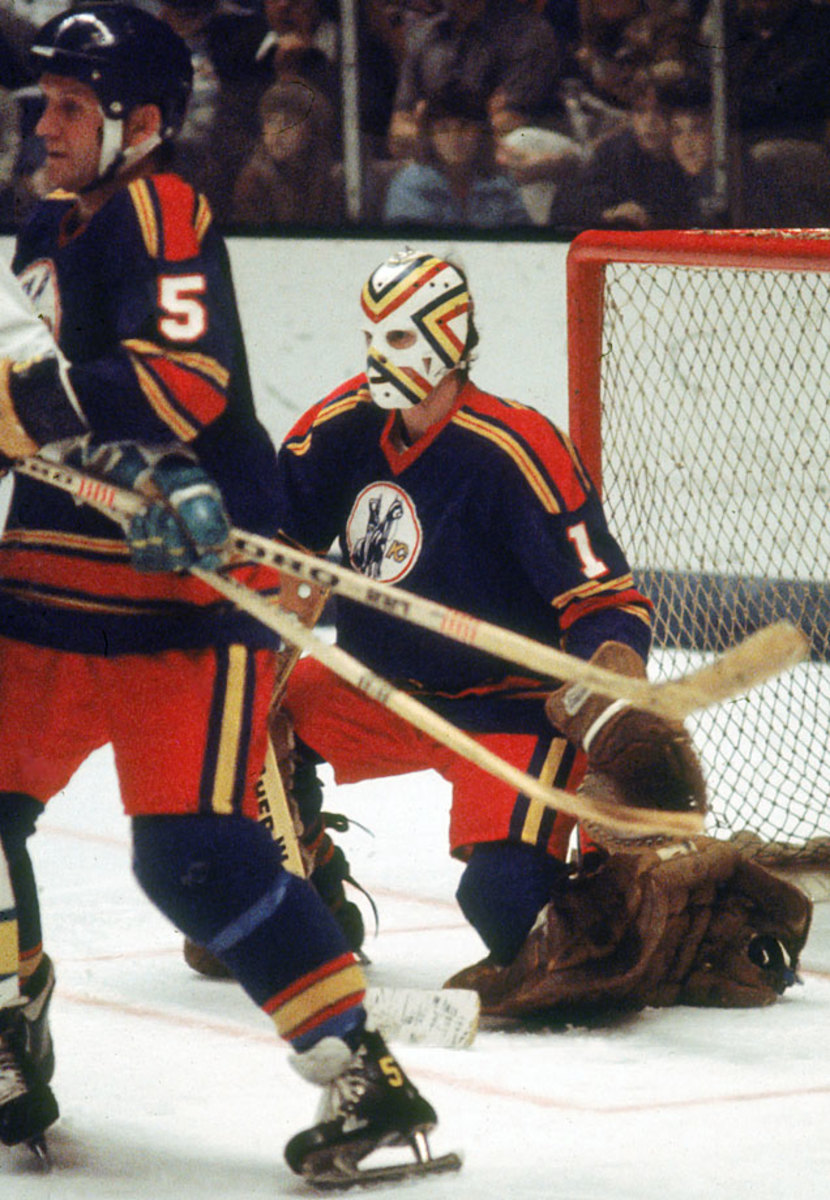
True nomads, the Scouts departed for Colorado and became the Rockies after two disastrous, sparsely attended seasons in Kansas City during which they won only 27 of their 160 games. They weren’t much better in their new home, reaching the playoffs once before moving to New Jersey in 1982 and becoming the Devils, who drew the ire of Wayne Gretzky for being, as he famously called them, “a Mickey Mouse franchise.” Since then, the team has fared much better on the ice, if not at the box office where it still struggles. The Devils have had their share of ownership changes and in 1995 were rumored to be moving to Nashville. All-time regular season record: 1,314-1,361-328-95; Postseason appearances: 22; Stanley Cups: 3
Washington Capitals | 1974
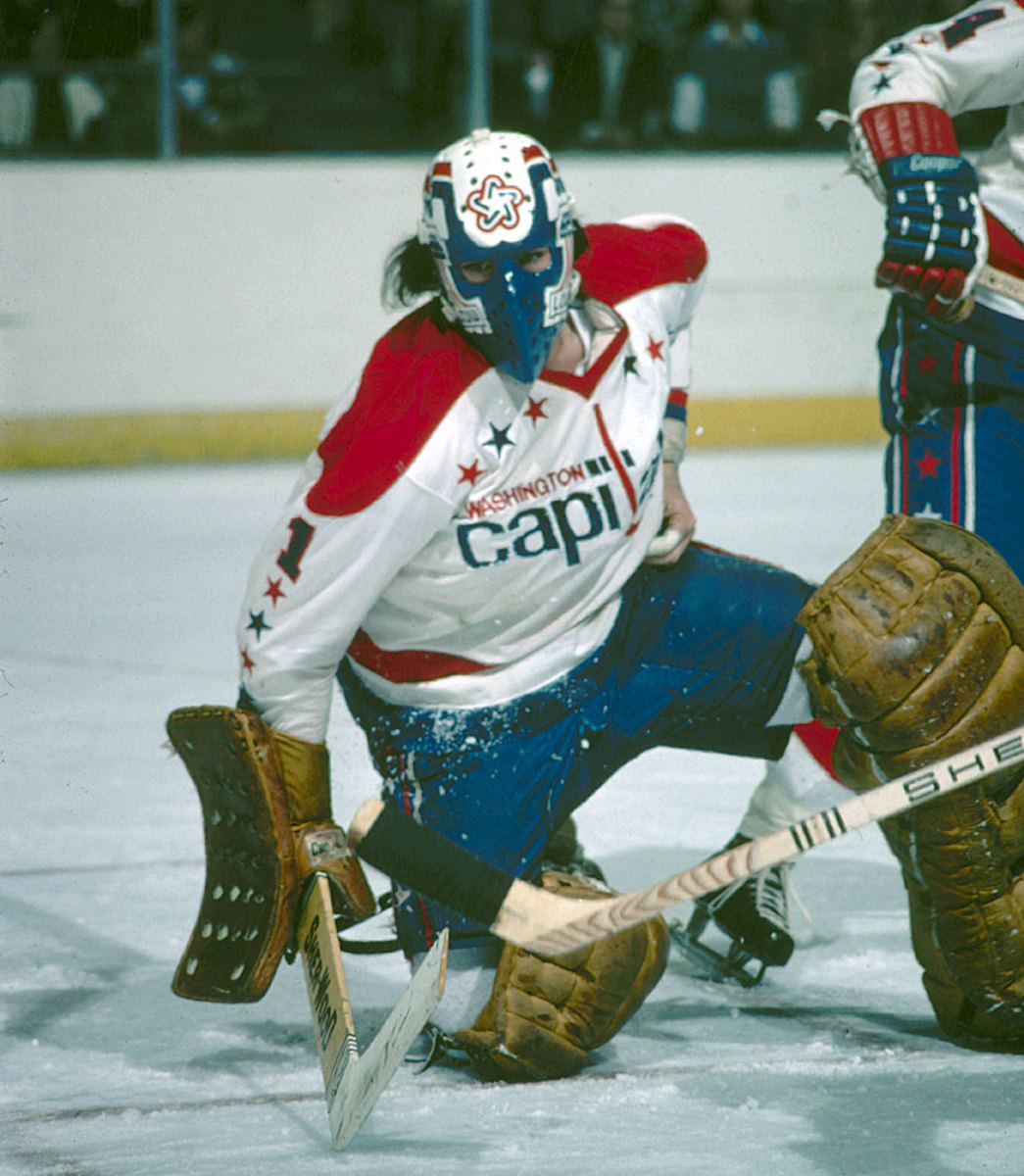
The Caps survived (barely) a horrid 8-67-5 first season that saw them set a record for futility. Blessed with a deep-pocketed owner (Abe Pollin), they hung on and eventually became a competitive team, though by the early 80s they were in danger of being relocated. A 14-year streak of playoff appearances helped keep them in D.C., and in 1998 they reached the Stanley Cup Final. Owned by the equally wealthy Ted Leonsis since 1999, the Capitals remain a stable if frustrating franchise that frequently fails to make the most of the considerable talent it puts on the ice. All-time regular season record: 1,370-1,317-303-108; Postseason appearances: 24; Stanley Cups: 0
Edmonton Oilers | 1979
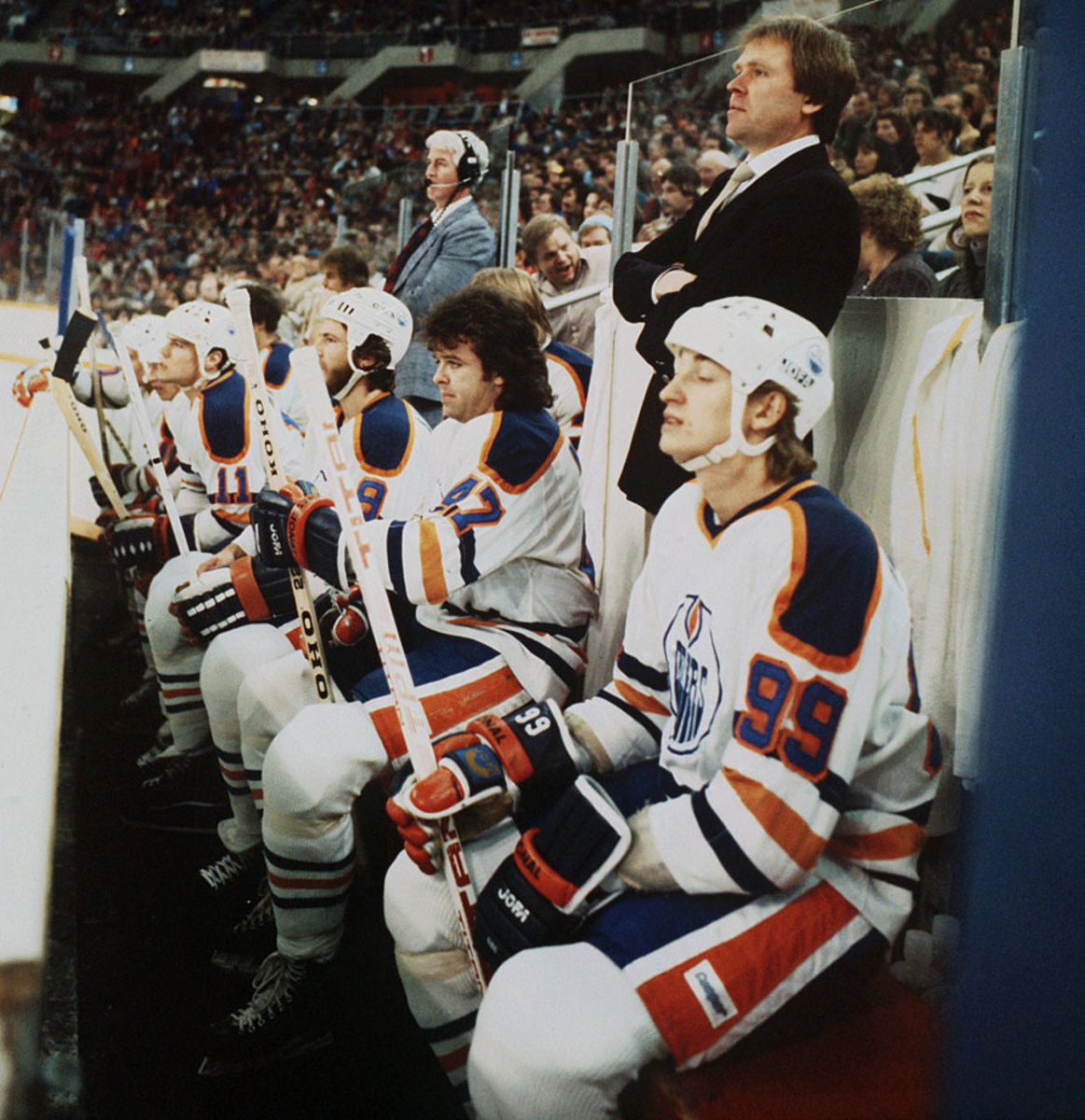
The NHL absorbed four WHA teams in 1979 and the Oilers are the only one that’s still in its original city. The team dominated the league in the 1980s, winning five Stanley Cups in six years, but its been a bumpy road ever since. A series of ownership changes and a recent arena dispute led to rumors of relocation, possibly Seattle. On the ice, the team has been a doormat in recent years despite a spate of high draft picks. All-time regular season record: 1,224-1,1102-262-110; Postseason appearances: 20; Stanley Cups: 5
Hartford Whalers | 1979
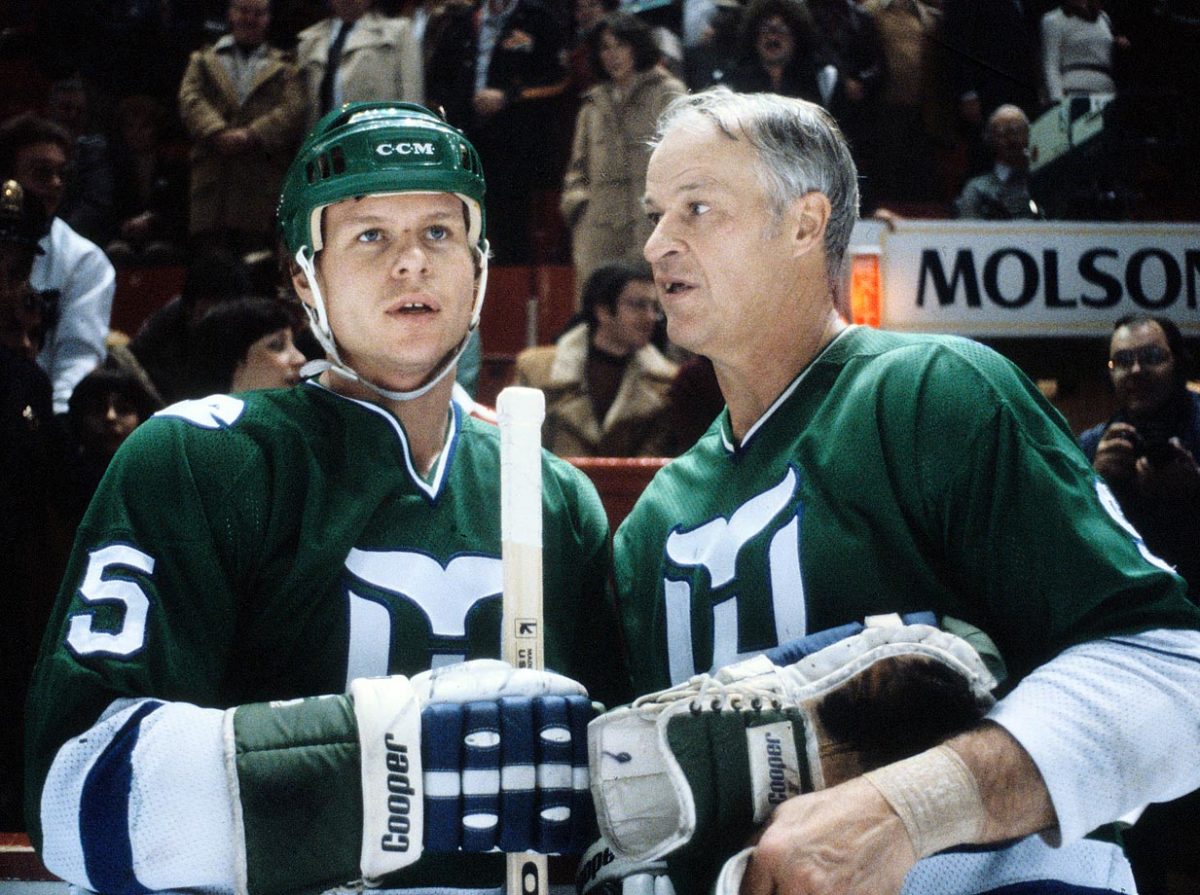
Absorbed from the WHA in 1979; the Whalers featured the 51-year-old Gordie Howe and went on to develop a reputation as lovable losers who advanced as far as the second round of the playoffs only once. After moving to Carolina in 1997 and becoming the Hurricanes, the franchise went on to make two Stanley Cup Final appearances, winning the championship in 2006. However, it languishes at 27th on Forbes’ franchise value list (at $187 million). Die-hard Whalers fans remain, and there is occasional talk of the NHL returning to Hartford. All-time regular-season record: 1,104-1,230-263-101; Postseason appearances: 13; Stanley Cups: 1
Quebec Nordiques | 1979
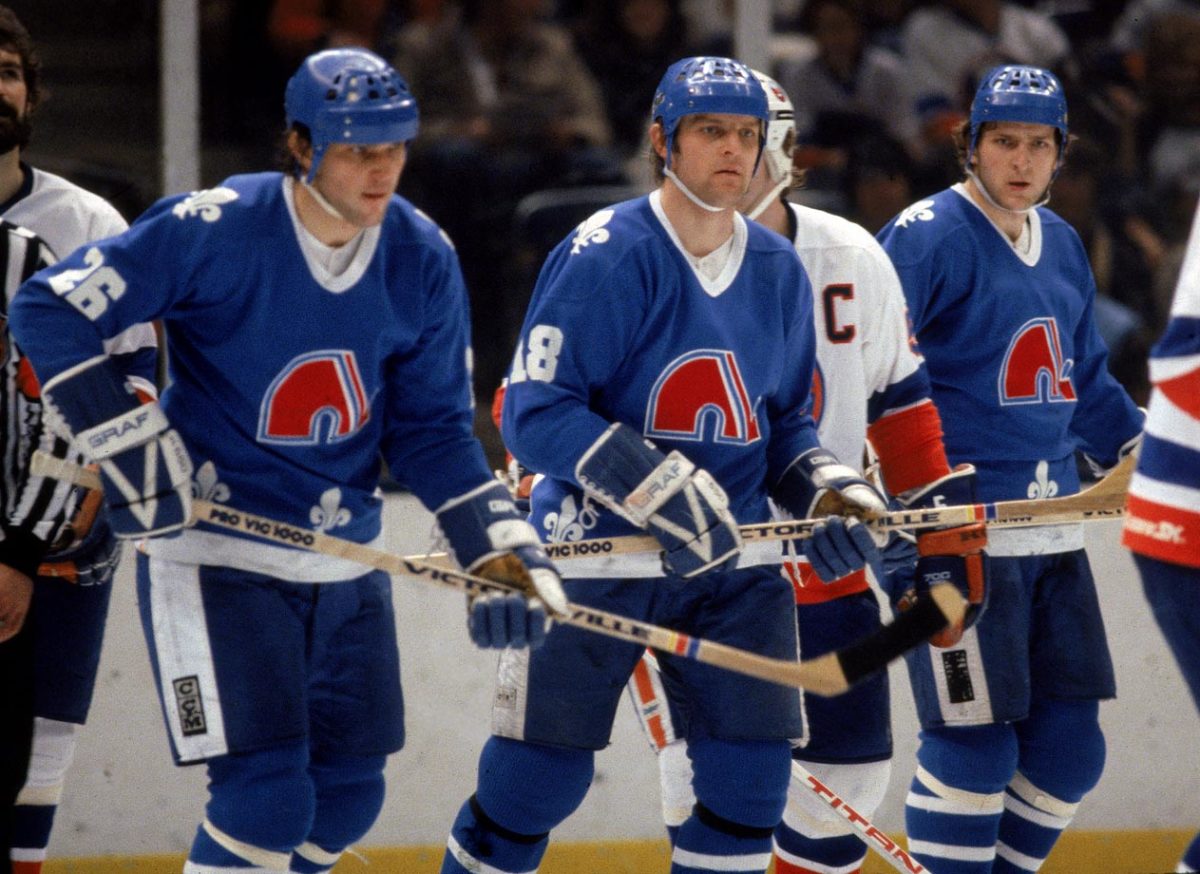
Yet another of the four 1979 additions from the WHA, the Nordiques boasted some very competitive teams in the 1980s (two reached the conference finals) and a heated rivalry with Montreal. But after six straight losing seasons, including a 12-61-7 mark in 1989-90, the franchise fell into financial difficulties that remained despite some vastly improved teams. In 1995, the Nords moved to Colorado, winning the Stanley Cup during their first season as the Avalanche. The franchise struggled at the gate in recent seasons, but a promising 2013-14 season improved the outlook. All-time regular-season record: 1,242-1,108-261-87; Postseason appearances: 22; Stanley Cups: 2
Winnipeg Jets | 1979
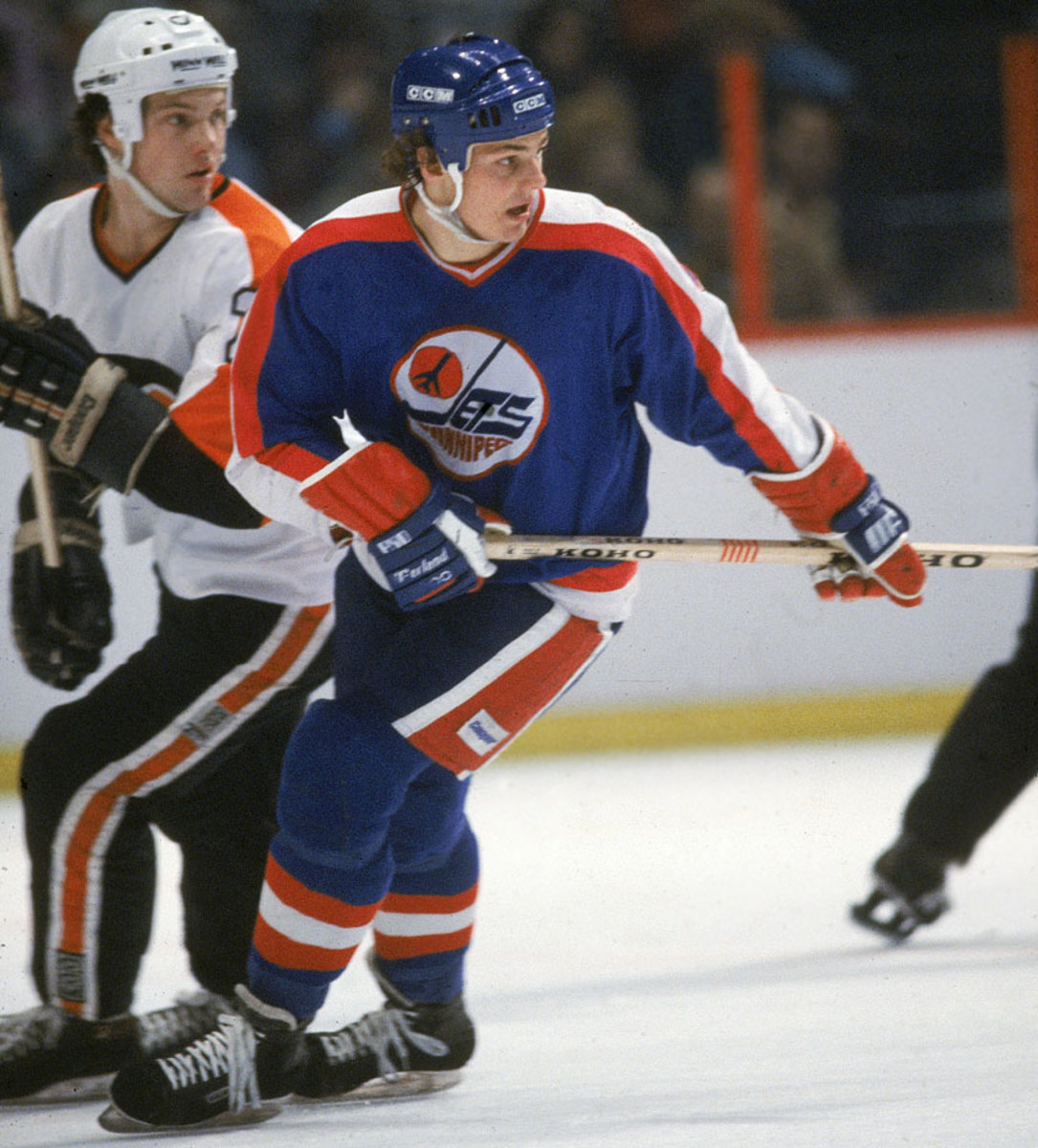
This original WHA franchise was absorbed by the NHL and beloved during its tenure in Winnipeg, a small market that took a brutal hit from a rise in player salaries in the ‘90s. Rumored to be moving to Minnesota, the Jets ended up in a suburb of Phoenix, Arizona in July 1996 and were renamed the Coyotes. Saddled with an arena in an inconvenient location for its fans, the team has endured years of financial hardship and was taken over by the NHL after it went bankrupt. A leading candidate for relocation, the Yotes remain in Arizona after being sold to a new ownership group in August 2013. All-time regular season record: 1,121-1,206-266-105; Postseason appearances: 16; Stanley Cups: 0
San Jose Sharks | 1991
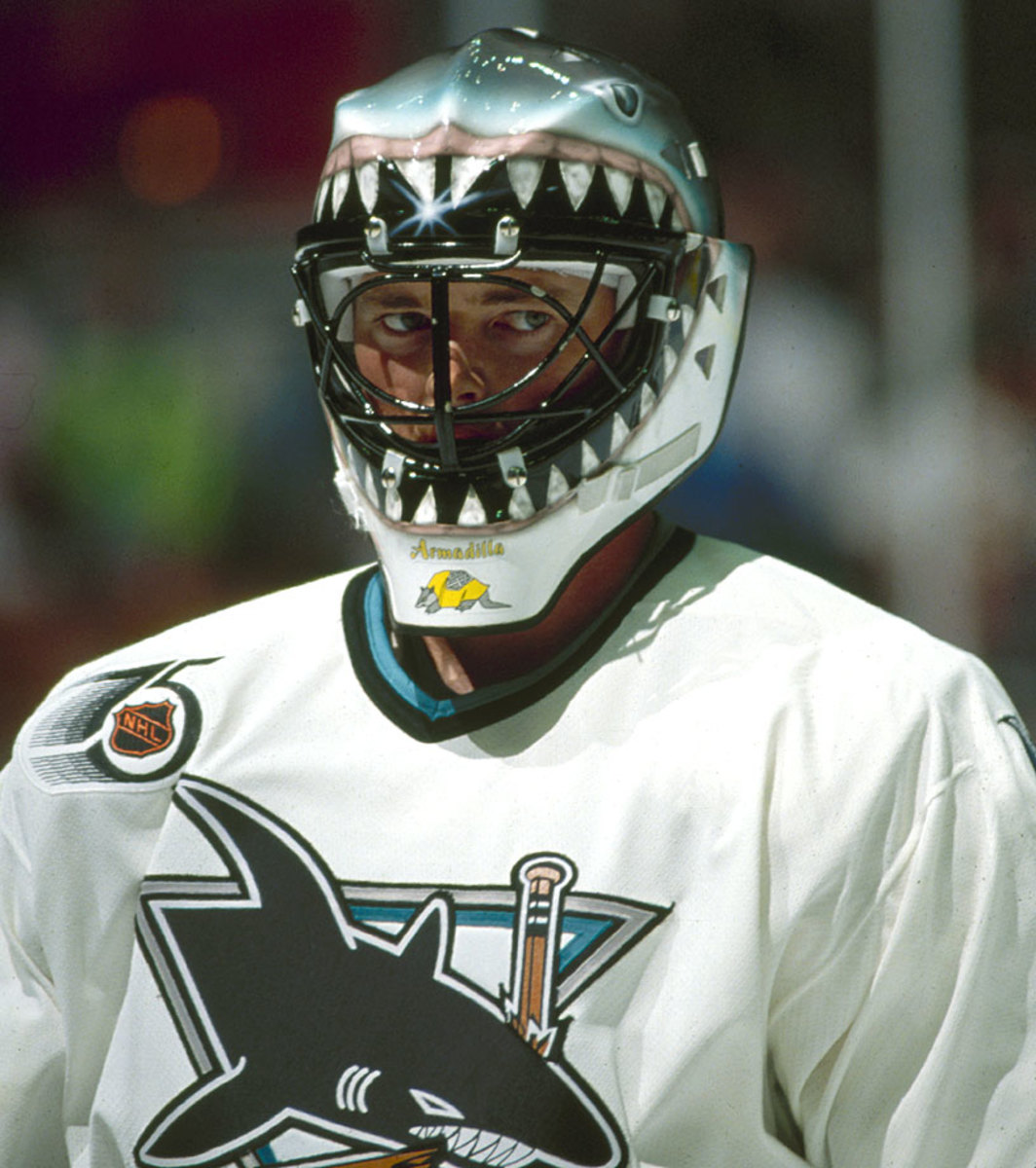
The NHL returned to the San Francisco Bay Area due to the efforts of Gordon and George Gund III, former minority owners of the California (Oakland) Golden Seals. Awarded a new franchise after selling their share in the North Stars, the Gunds had to let the Sharks play in San Francisco’s Cow Palace for two seasons until their new arena in San Jose was completed. The franchise has since become one of the NHL’s most stable and competitive even if does have a frustrating reputation for great regular season success followed by postseason disappointment. All-time regular season record: 797-710-121-110; Postseason appearances: 17; Stanley Cups: 0
Ottawa Senators | 1992
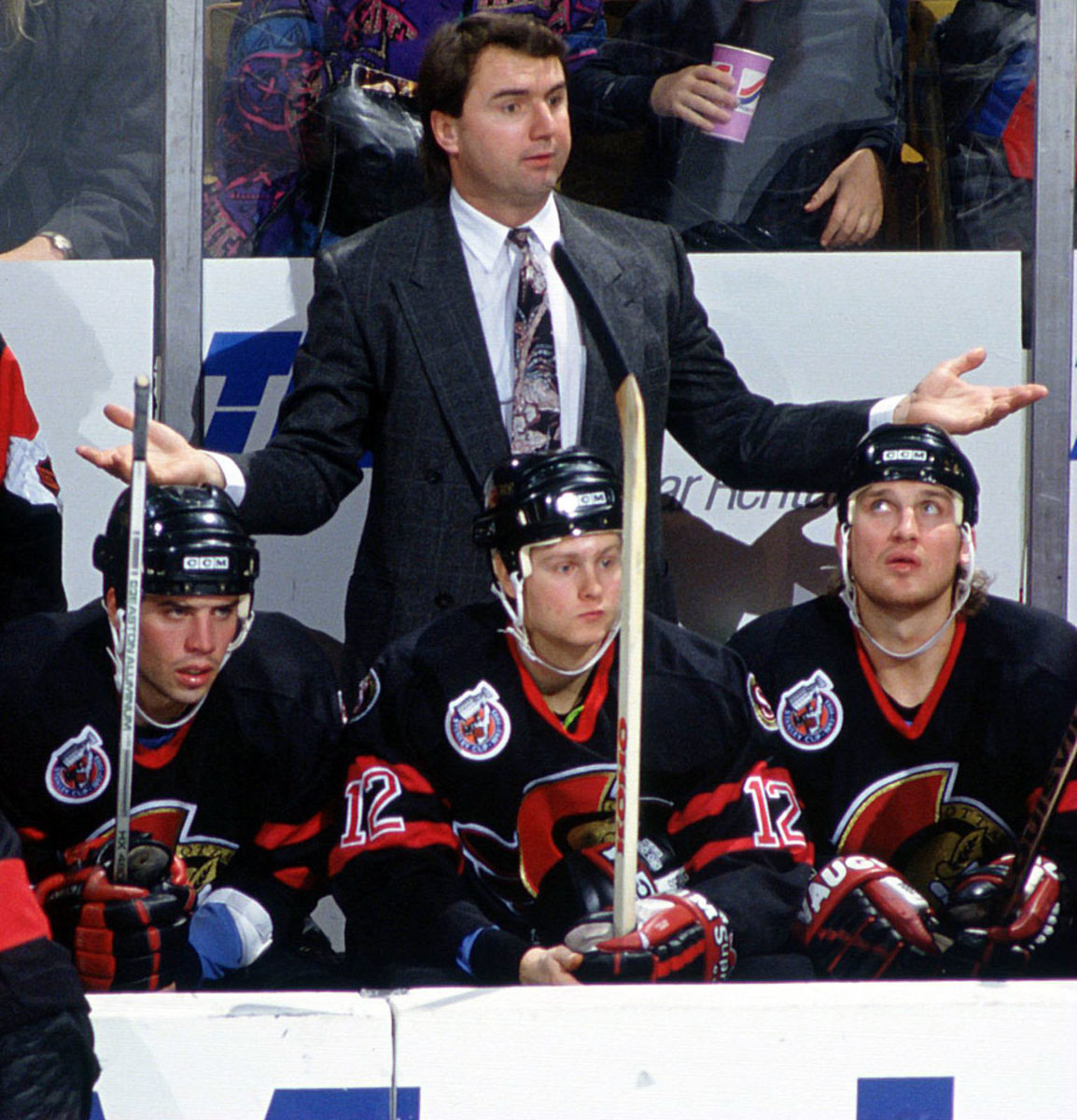
Named after Ottawa’s original Senators, who won 11 Stanley Cups, the new franchise was an attractive choice for the NHL due to its passionate fan base, existing arena and plan for a new facility. After four rocky losing seasons, the Sens became consistently competitive and reached the Stanley Cup Final in 2007. Despite some recent poor showings, the team remains stable with good support and a committed owner in Eugene Melnyk, though there have been reports that he is seeking a minority partner who could eventually take control. All-time regular season record: 741-699-115-103; Postseason appearances: 14; Stanley Cups: 0
Tampa Bay Lightning | 1992
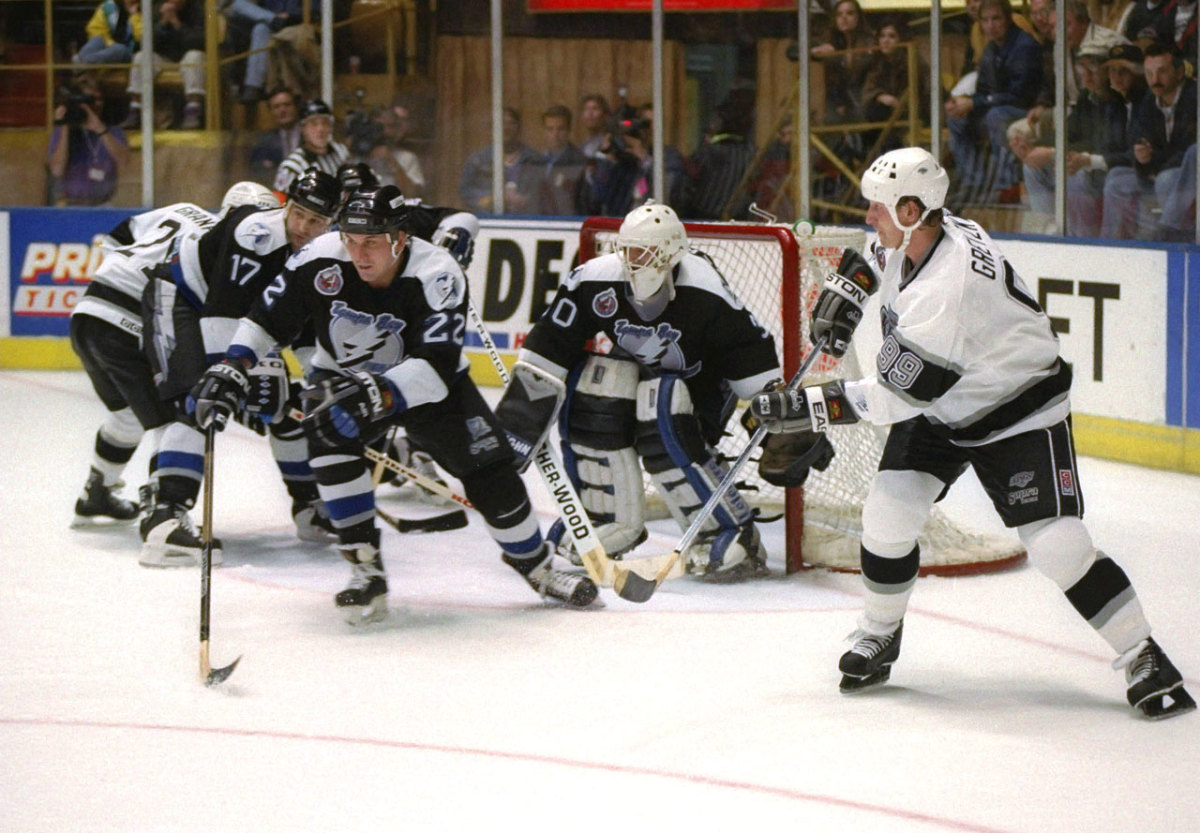
The NHL’s first foray into Florida, the franchise was awarded to an ownership group fronted by Hall of Famer Phil Esposito, who became GM and president. The Lightning played their first season in Tampa’s 11,000-seat Expo Hall at the Florida State Fairgrounds and later moved to the baseball-friendly Suncoast Dome. Dicey ownership and debt left the Bolts on the verge of being taken over by the NHL while they struggled to become a consistent playoff team. Financial losses and ownership changes have continued, but the team’s 2004 Stanley Cup win and recent return to competitiveness have helped keep the Bolts in place. All-time regular season record: 652-785-112-109; Postseason appearances: 7; Stanley Cups: 1
Mighty Ducks of Anaheim | 1993
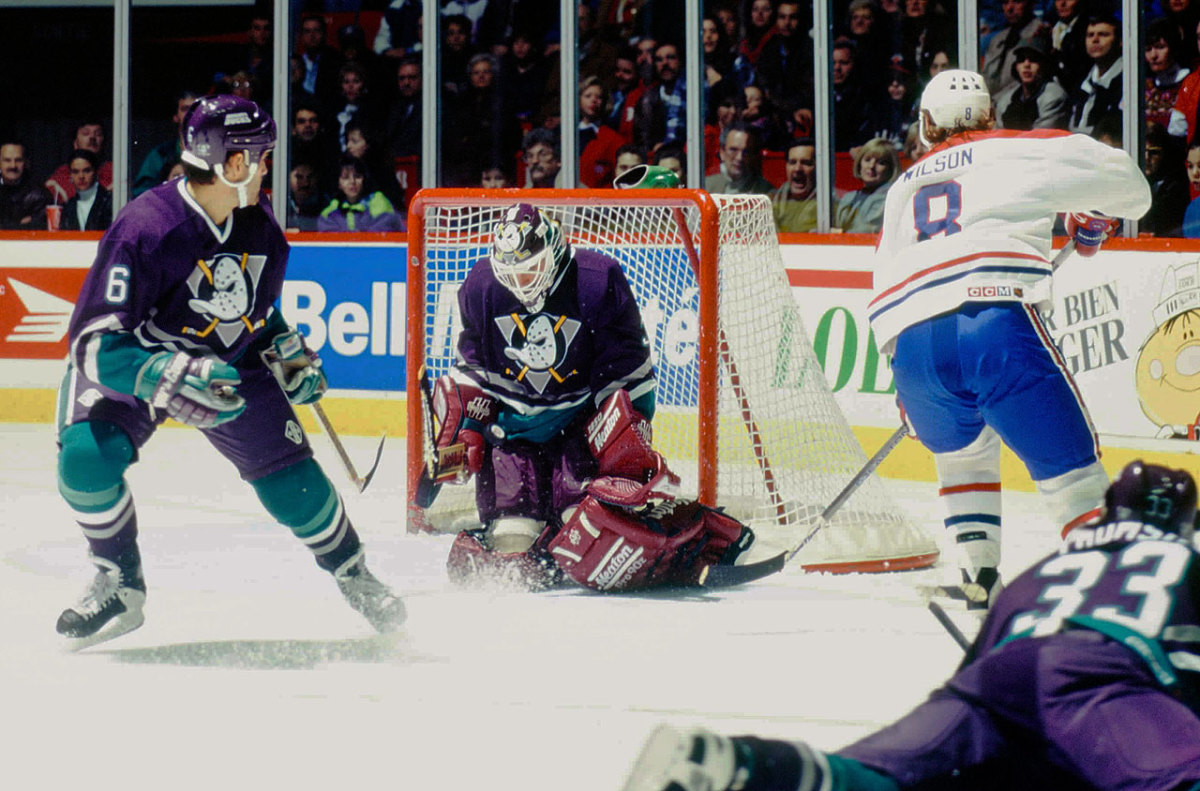
Awarded to The Walt Disney Company, their named based on a popular movie, the Ducks had a brand new arena and local rivalry with the LA Kings awaiting them. Since their very respectable 33-46-5 first season, they have enjoyed significant success, appearing in the Stanley Cup Final twice and, in 2007, becoming the first California-based NHL team to win the chalice. They remain blessed with solid ownership and a roster that is considered a solid Cup contender. All-time regular-season record: 722-637-107-108; Postseason appearances: 10; Stanley Cups: 1
Florida Panthers | 1993
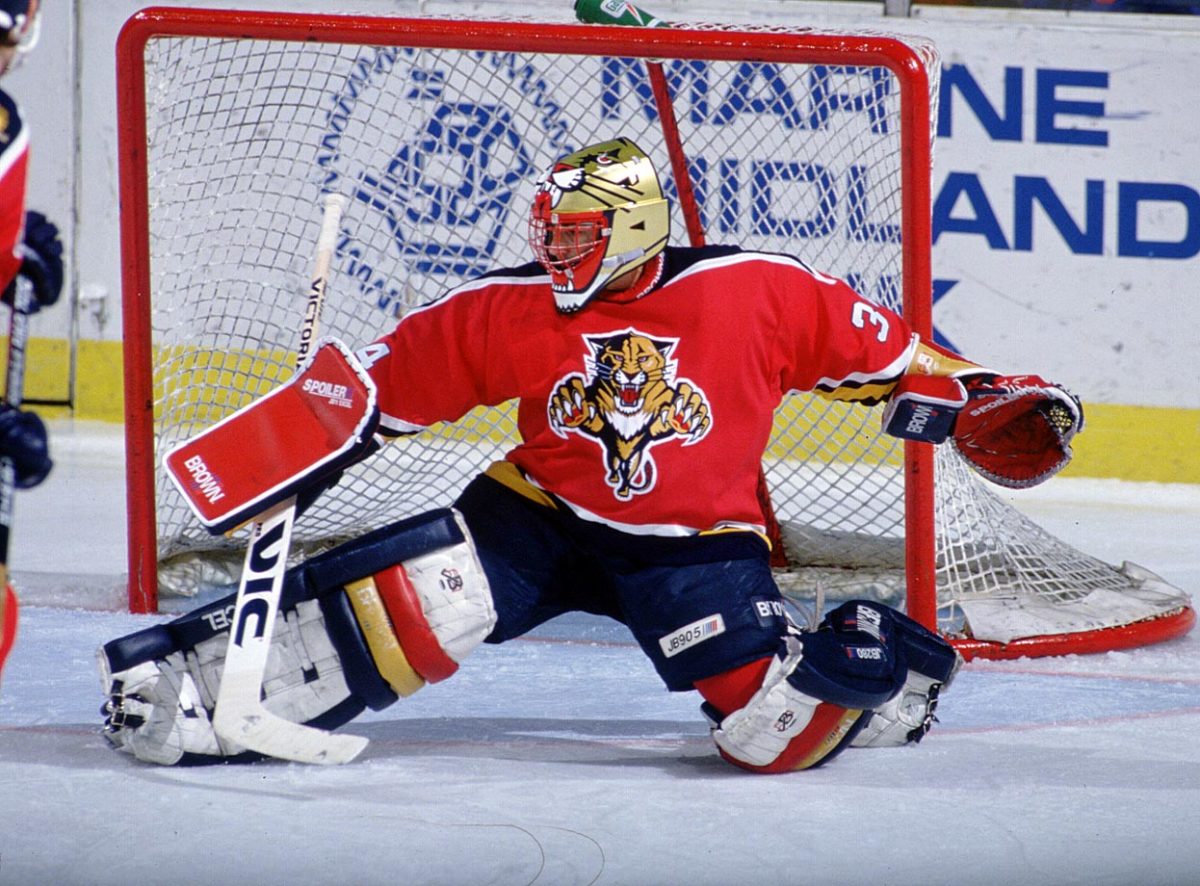
The second franchise to set up shop in Florida has battled long stretches of mediocrity, poor management, and the Miami area’s stiff competition for entertainment dollars. One of the few bright spots: a surprise trip to the 1996 Stanley Cup Final by a team assembled by Bill Torrey, the architect of the Islanders dynasty. But Florida’s new owners, who claim to be losing $30 million per year, have decried the team’s business model as “not sustainable” and are seeking more tax revenue from Broward County. No wonder the Panthers are often considered ripe for relocation. All-time regular season record: 617-677-142-138; Postseason appearances: 4; Stanley Cups: 0
Nashville Predators | 1998
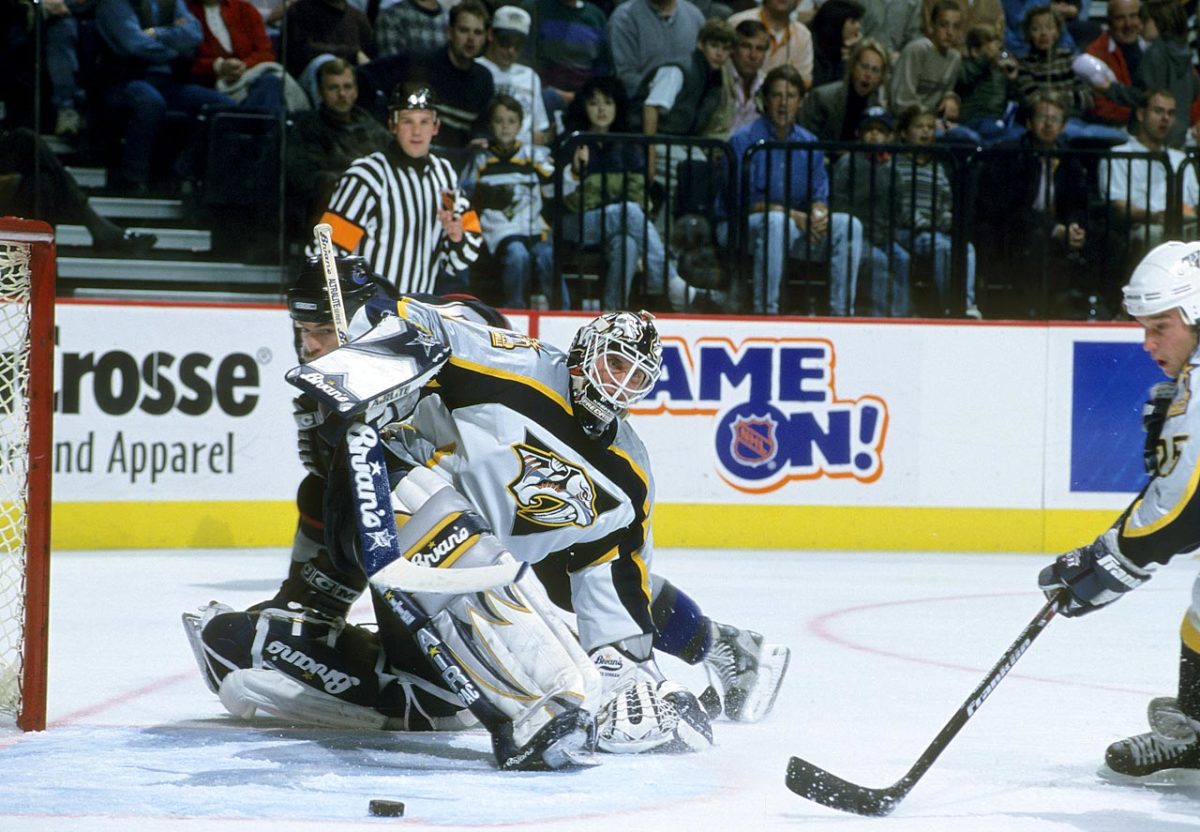
Thanks in part to a new arena and the city’s failure to lure the Devils from New Jersey, Nashville was awarded a new franchise in an expansion surge that saw the NHL also plant teams in Atlanta, Columbus, and Minneapolis-St. Paul. The Predators were the first of them to take the ice and the ensuing years have seen a string of steady if unremarkable teams, relocation rumors, ownership change and controversy (Boots Del Biaggio’s bankruptcy and fraud conviction), and attempts to drum up fan support. But the Preds continue to hang in there. All-time regular season record: 557-479-60-100; Playoff appearances: 7; Stanley Cups: 0
Atlanta Thrashers | 1999
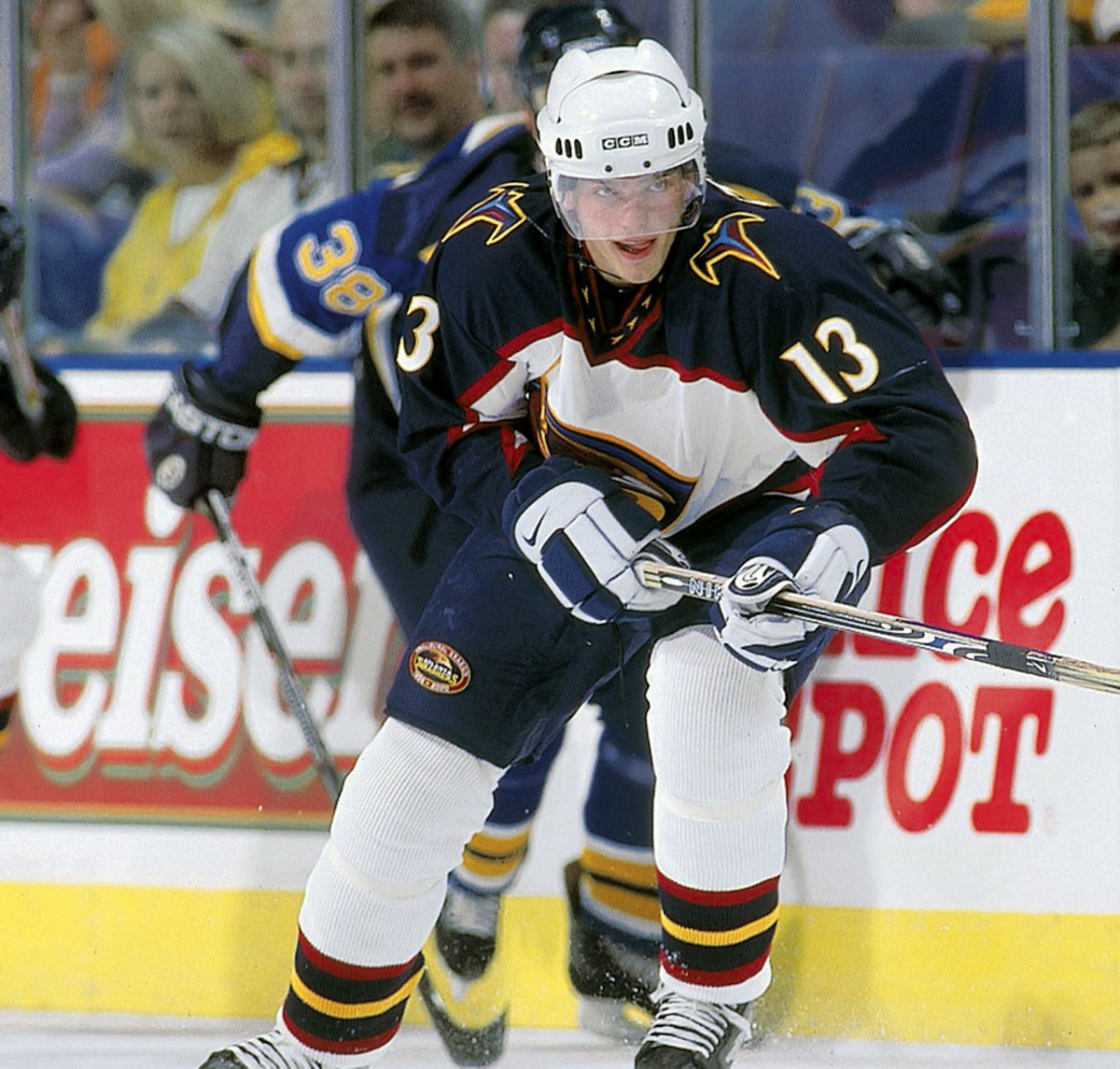
The NHL’s return to Atlanta went no better than its first go-round with the Flames. Cursed by poor management, consistent mediocrity, and an understandably apathetic fan base, the second team to take the ice in the NHL’s most recent expansion surge managed to make the playoffs only once in 11 seasons before being sold. The new group moved the team to Winnipeg, where it was warmly received and renamed the Jets. However, the team remains consistently mediocre and the question now is how long the honeymoon will last. All-time regular season record: 440-528-45-101; Playoff appearances: 1; Stanley Cups: 0
Columbus Blue Jackets | 2000
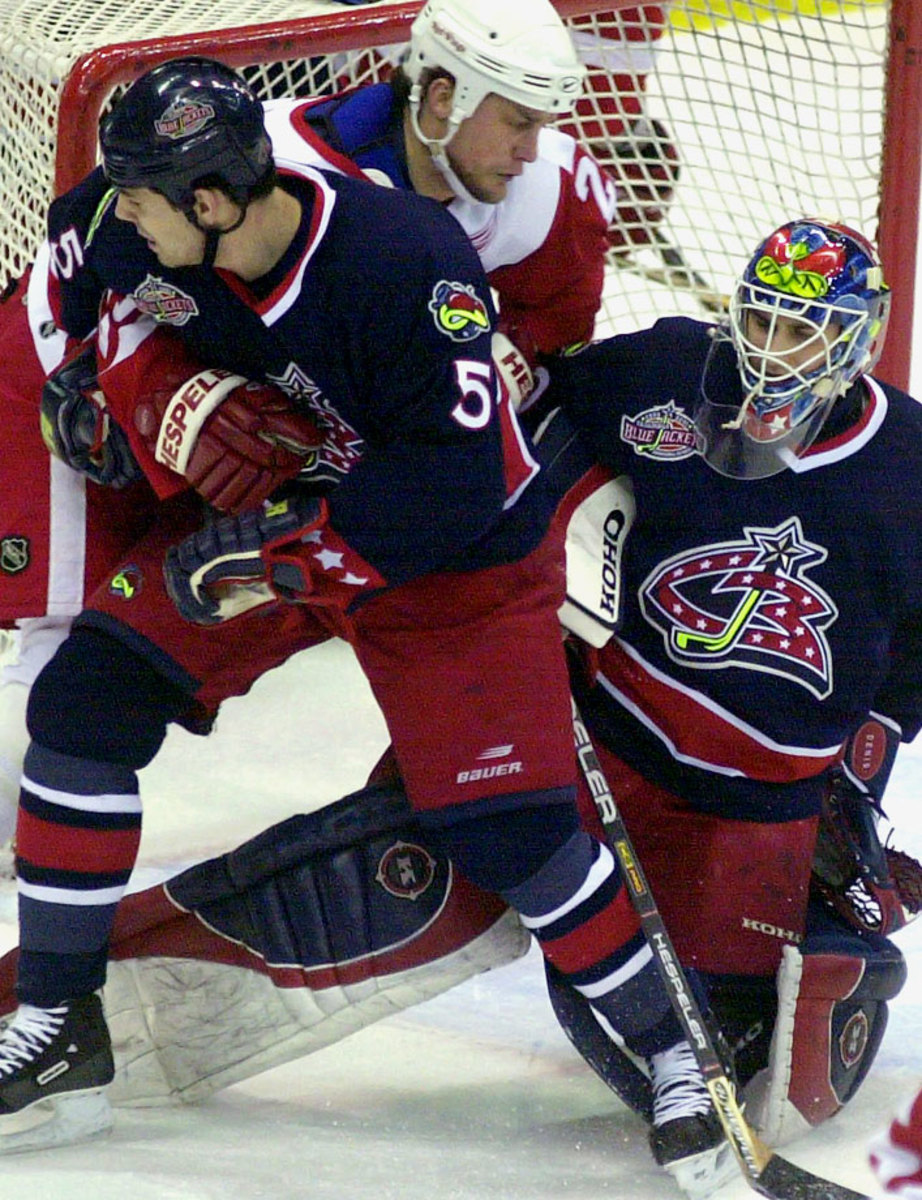
An arena issue forced Columbus into a battle to acquire what is now the NHL’s least valuable franchise ($175 million, according to Forbes). During their history, the Blue Jackets have been consistently non-descript, frequently lacking star power and suffering from poor management. Their fortunes are looking brighter due to the arrival in the past year of savvy hockey ops president John Davidson and respected GM Jarmo Kekalainen. All-time regular season record: 409-490-33-100; Playoff appearances: 2; Stanley Cups: 0
Minnesota Wild | 2000
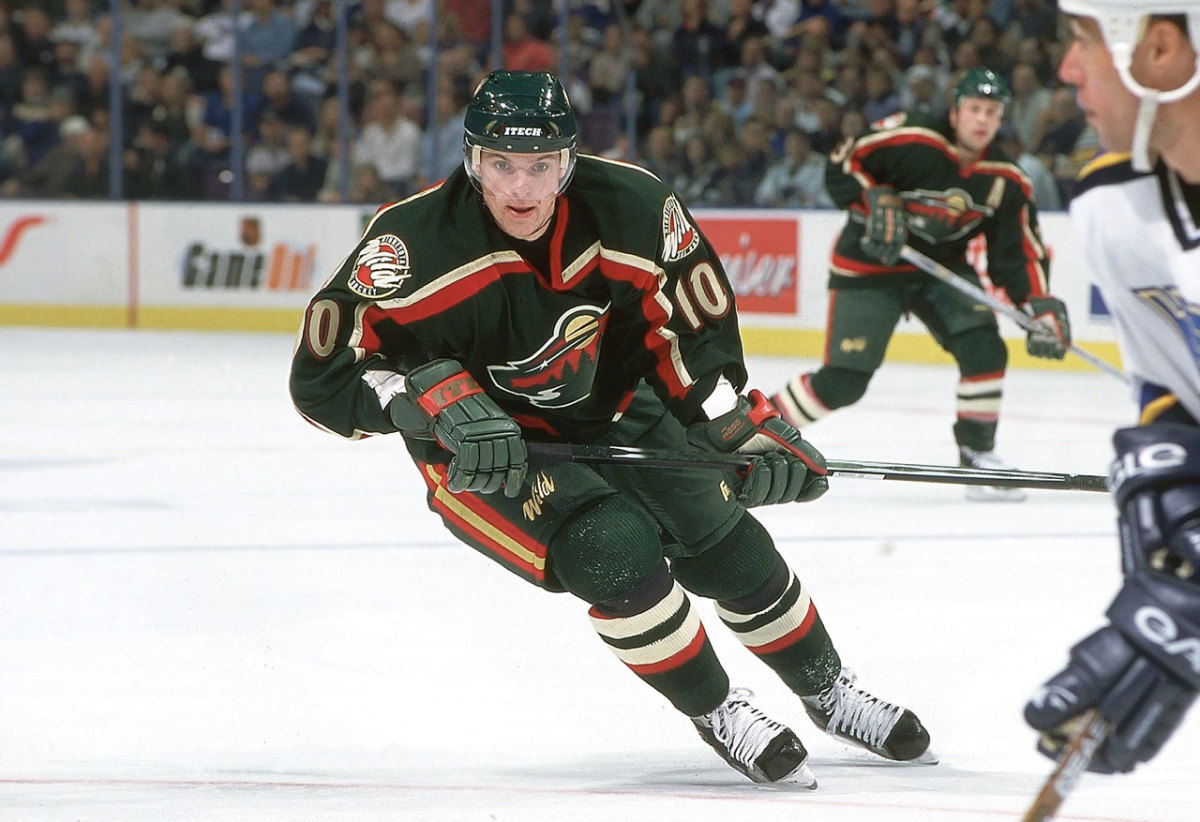
The league’s youngest expansion team took the ice three years after it was awarded in the NHL’s second stab at sticking in Minnesota. Now owned by a group led by Craig Leipold, who bought the Wild after selling the Predators in 2007, the Wild has struggled to make consistent postseason appearances. The high-priced additions of free agent stars Zach Parise and Ryan Suter in 2012 have spearheaded some marked improvement, as evidenced by the Wild’s upset of Colorado in the first round of the 2014 playoffs, but the team has yet to reach the conference final. Even so, its future in Minneapolis-St. Paul is hardly in doubt. All-time regular season record: 474-408-55-95; Playoff appearances: 5; Stanley Cups: 0
